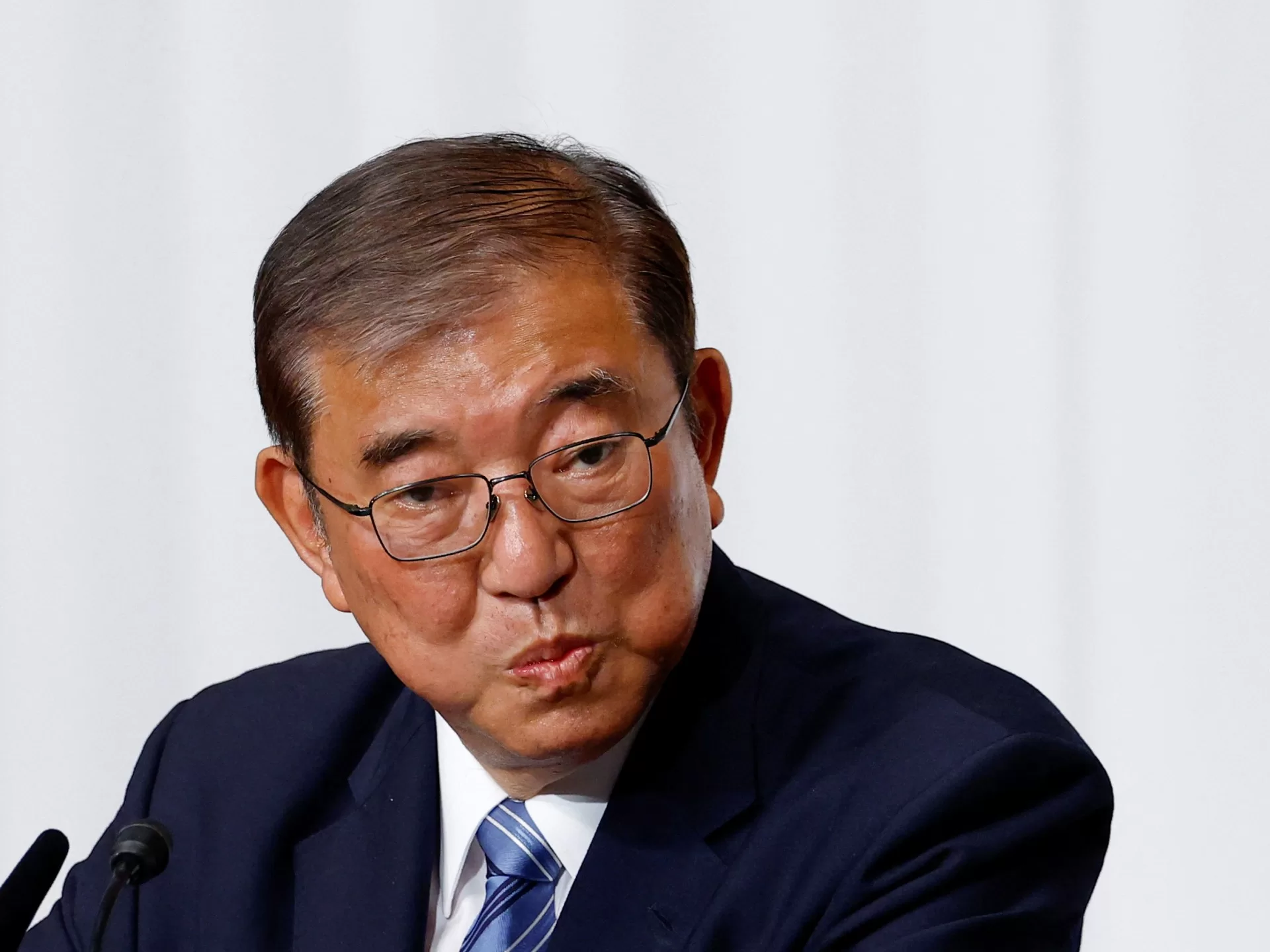Sunday’s snap election was the governing party’s worst result in 15 years, exit polls and media showed.
Japan’s Prime Minister Shigeru Ishiba has pledged to stay in office despite receiving a major blow in Sunday’s snap election he called himself to shore up more support for his party.
Ishiba told reporters on Monday he would not allow a “political vacuum” to occur after Japan’s ruling coalition lost its parliamentary majority in a significant defeat for his Liberal Democratic Party (LDP), which has governed the country almost continuously since 1955.
Ishiba, 67, called the vote days after assuming office on October 1. But voters, angry at a funding scandal, punished the LDP by reducing it to 191 seats, down from 259 in the 465-member lower house of parliament. LDP’s coalition partner Komeito won 24 seats.
The snap election was the governing coalition’s worst result in 15 years, exit polls and results reported by national broadcaster NHK and other media showed. The yen hit a three-month low as results came out.
Despite this, Ishiba said: “I want to fulfill my duty by protecting people’s lives, protecting Japan.”
“People’s suspicion, mistrust and anger” at the slush fund scandal – which saw LDP figures pocket money from fundraising events and which helped sink his predecessor Fumio Kishida – factored in the election result, Ishiba said.
“I will enact fundamental reform regarding the issue of money and politics,” Ishiba stressed, repeating that voters had delivered a “severe judgement” on the party.
Japanese media had earlier speculated that if LDP lost the majority, Ishiba could quit, becoming the nation’s shortest-serving prime minister since the end of World War II.
The LDP’s election committee chief, former Premier Junichiro Koizumi’s son Shinjiro Koizumi, resigned on Monday.
What next?
Ishiba is expected to seek to head a minority government, with the divided opposition seen as likely incapable of forming a coalition of their own, analysts said.
But the prime minister on Monday said he was not considering a broader coalition “at this point”. As mandated by the constitution, the parties now have 30 days to figure out a grouping that can govern.
The opposition, under former premier Yoshihiko Noda’s Constitutional Democratic Party (CDP), made significant gains, which raised its projected seat tally to 148 from 96 at the last election.
“Voters chose which party would be the best fit to push for political reforms,” Noda said late on Sunday, adding that the “LDP-Komeito administration cannot continue”.
Japan’s government and governing coalition officials are planning to convene a special parliament session to select the prime minister on November 11, Kyodo News reported on Monday, quoting multiple unnamed sources.
“Lawmakers aligned with [former Prime Minister Shinzo] Abe were cold-shouldered under Ishiba, so they could potentially pounce on the opportunity to take their revenge,” Yu Uchiyama, political science professor at the University of Tokyo, told the AFP news agency.
“But at the same time, with the number of LDP seats reduced so much, they might take the high road and support Ishiba for now, thinking it’s not the time for infighting,” he added.
